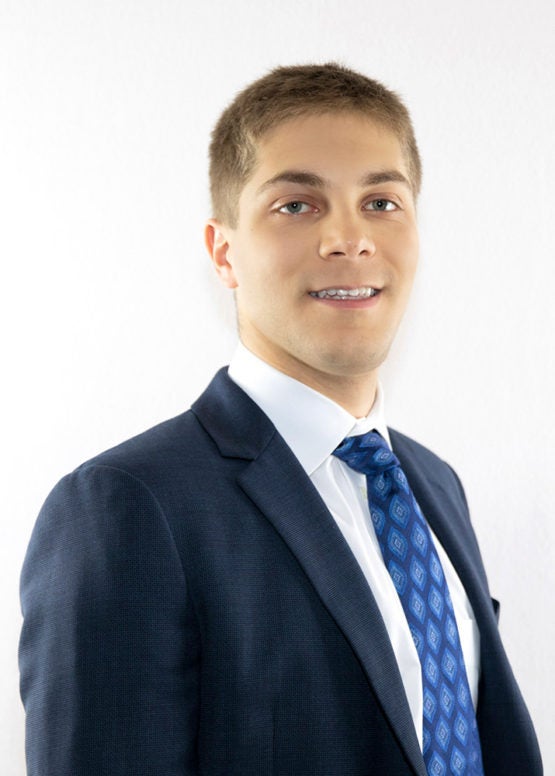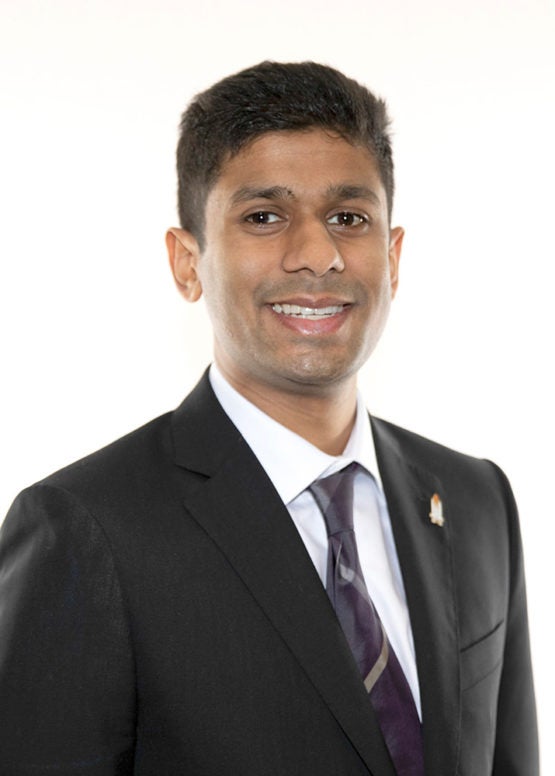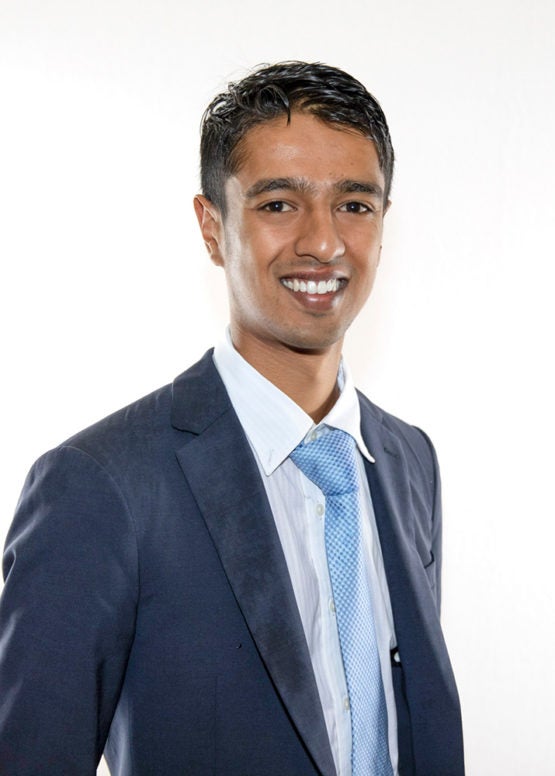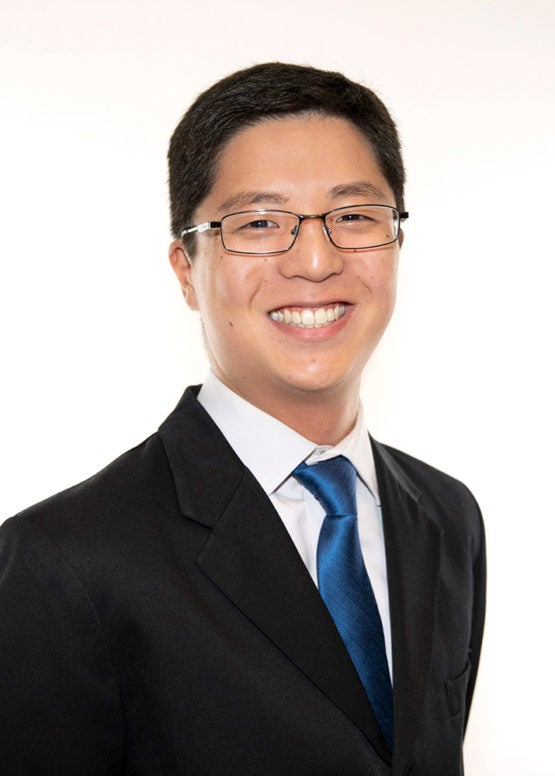Schwarzman Class of 2020 includes four Stanford students
As Schwarzman Scholars, the students will earn one-year master’s degrees in global affairs – with a focus on public policy, economics and business, or international studies – at Tsinghua University in Beijing. They will begin their studies in August 2019.
Four Stanford students have won 2020 Schwarzman Scholarships for graduate study at Tsinghua University in Beijing, one of China’s most prestigious universities.
They are among the 147 scholars from 38 countries who were named 2020 Schwarzman Scholars. They will begin master’s degree programs in August 2019.
The scholarship program was designed to prepare future global leaders to meet the geopolitical challenges of the 21st century. The vision of Schwarzman Scholars is to bring together young scholars to explore and understand the economic, political and cultural factors that have contributed to China’s increasing importance as a global power and to make them more effective as links between China and the rest of the world.
Each Schwarzman Scholar earns a one-year master’s degree in global affairs with a concentration in one of three disciplines: public policy, economics and business, or international studies.
The 2020 Schwarzman Scholars from Stanford follow:

Philip Clark (Image credit: Lauren Eliot Photography)
Philip Clark, 21, of New York City, is a senior majoring in management science and engineering. He is an honors student in international security studies and is writing an honors thesis examining the national security implications of foreign investment in American technology companies. He is also minoring in computer science and economics.
As a Schwarzman Scholar, Clark hopes to explore how innovation will reshape international relations.
Clark, who visited China as a student member of the National Committee on U.S.-China Relations the summer before his first year at Stanford, said the trip inspired him to embark on a course of study at the nexus of macroeconomics, geopolitics and technology policy.
His Stanford studies included coursework in Chinese diplomatic history and modern British politics at the University of Oxford in England, through the Bing Overseas Studies Program. He is a research assistant at the Stanford Center for International Security and Cooperation and has served as a teaching assistant for the Department of Economics. He was editor-in-chief of The Stanford Review, a student political magazine, from 2016 to 2017.

Neil Jain (Image credit: Lauren Eliot Photography)
Neil Jain, 21,of Medina, Washington, is a senior majoring in science, technology and society. As a Schwarzman Scholar, he plans to study business and economics with the goal of better understanding the Chinese entrepreneurial ecosystem.
During his first year at Stanford, Jain became a fellow of the Kairos Society, a global community of students who are passionate about using entrepreneurship to solve the world’s biggest problems.
As the U.S. director of the society, a position Jain has held since his sophomore year, he launched 17 new regional chapters that added 350 new Fellows to the society. He now manages regional chapters at 40 sites across the country.

Kiran Sridhar (Image credit: Lauren Eliot Photography)
Kiran Sridhar, 21, of Woodside, California, a senior and an honors student in economics, is currently writing his honors thesis, “Hacking for Good: Leveraging HackerOne Data to Develop an Economic Model of Bug Bounties.” As a Schwarzman Scholar, he hopes to use the curriculum, as well as exposure to Chinese technology companies and government officials, to better understand the country’s perspective on cybersecurity.
At Stanford, Sridhar was a student member of the Committee on Globalization of the Stanford University Board of Trustees from September 2017 to June 2018. He served as a course designer and teaching assistant for the 2016 online course, “Living at the Nuclear Brink: Yesterday and Today,” taught by former U.S. secretary of defense William J. Perry, the Michael and Barbara Berberian Professor, Emeritus, at Stanford.
Sridhar is the founder and executive director of Waste No Food, which enables farms, restaurants, cafeterias and grocery stores to post excess food on their websites, where it can be secured by local aid groups that pick up the food and deliver it to people in need.

Christopher Yeh (Image credit: Lauren Eliot Photography)
Christopher T. Yeh, 22, of Cypress, California, is a co-terminal student earning bachelor’s and master’s degrees in computer science. As a Schwarzman Scholar, he plans to study environmental economics and learn how to work with government and industry leaders to leverage artificial intelligence for solving sustainability challenges.
At Stanford, Yeh is a research assistant in the Sustainability and Artificial Intelligence Lab, where he developed improved computer vision algorithms to create high-resolution “heat maps” of poverty in sub-Saharan Africa by merging daytime and nighttime satellite imagery. He is a co-author of a paper, “Poverty Prediction with Public Landsat 7 Satellite Imagery and Machine Learning,” which was presented at the 2017 Workshop on Neural Information Processing Systems. He said his Sophomore College course in Southeast Alaska inspired him to pursue research in sustainability.
Yeh has been an active member – serving as a team leader and as president – of Stanford Code the Change, a student group that partners with nonprofits to work on year-long software projects for social good. He played cello with the Stanford Symphony Orchestra from 2016–17, including a summer performance tour of Mexico and Cuba.
International scholarships
Stanford students interested in overseas scholarships and Stanford faculty interested in nominating students for such awards should contact Diane Murk, manager of the Overseas Resource Center, at dmurk@stanford.edu, or John Pearson, director emeritus of the Bechtel International Center, at john.pearson@stanford.edu.
